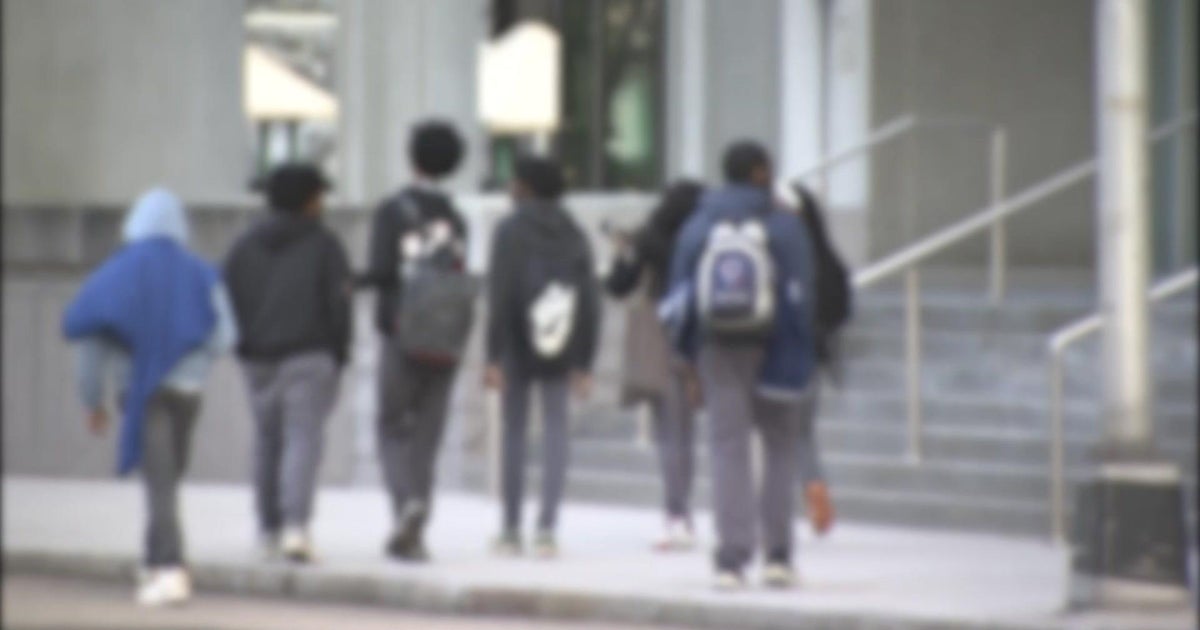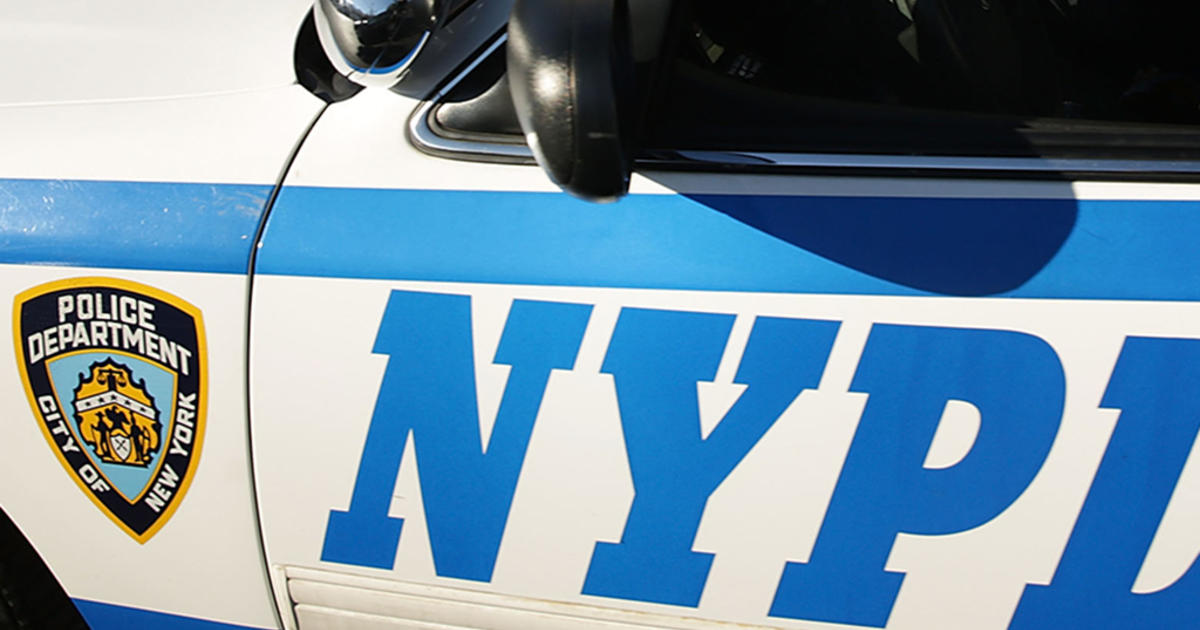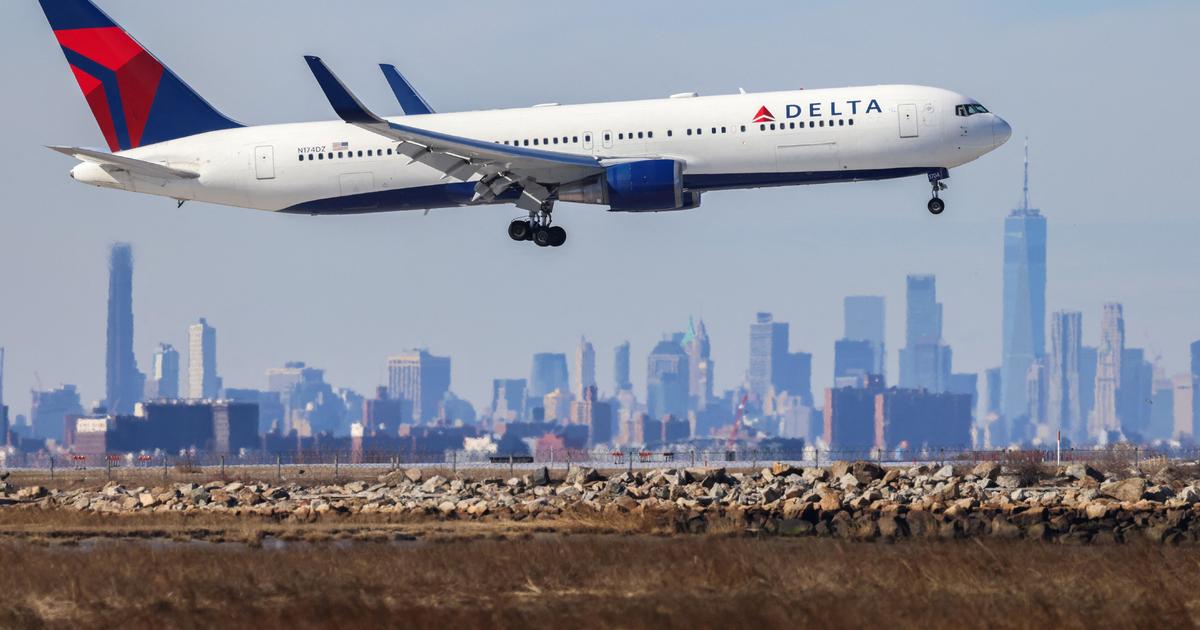N.J. Motorists Await End Of Red Light Camera Experiment
LINDEN, N.J. (CBSNewYork/AP) - Tuesday is the last day a flash from a red light camera will lead to a ticket in New Jersey. The state's pilot program ends at midnight Wednesday morning.
The end of the program couldn't come soon enough for Alex Valdez. In fact, it didn't.
"This is B.S.," Valdez muttered Tuesday as he sat in his truck at a gas station on Routes 1 & 9, staring at a printout of a $140 ticket for running a red light on the heavily congested artery south of Newark Liberty Airport.
N.J. Motorists Await End Of Red Light Camera Experiment
By midnight, cameras that have recorded hundreds of thousands of red light violations in two dozen towns were scheduled to go dark as the much-scrutinized pilot program comes to an end after five years filled with controversy.
"It's over? Thank god,'' said Valdez, 27, of Perth Amboy, no doubt echoing the sentiments of untold numbers of motorists who have run afoul of the eye in the sky. "Some of the lights have warnings, some don't. It seems like most don't. It's unfair.''
But not everyone thinks the red light cameras are a bad idea.
"If they didn't have the cameras, people would do whatever they want," one Englewood Cliffs resident told 1010 WINS' Glenn Shuck.
As WCBS 880's Peter Haskell reported, the number of tickets handed out at one Springfield intersection plunged 75 percent over two years. Police Chief John Cook attributes that to the red light camera.
N.J. Motorists Await End Of Red Light Camera Experiment
"It has certainly been successful as far as changing the driving habits of people, which is what to me, that's what the object of this program is," he said.
The Legislature would need to restart the program, but the prospects aren't considered good after Gov. Chris Christie said over the summer that he wouldn't be inclined to support its renewal. Christie's office declined comment last month and referred to his earlier statement.
The program's difficulties have been well documented. A federal lawsuit resulted in refunds to hundreds of thousands of violators, and a computer glitch this year voided more than 15,000 tickets. In 2012, the state had to temporarily suspend dozens of the cameras over concerns that yellow lights weren't properly timed to give drivers time to brake safely.
What isn't in dispute is that the cameras have enriched the coffers of the 25 towns that signed up for the pilot program through the state Department of Transportation (50 more towns applied but weren't included). For example, one intersection on Routes 1 & 9 in Linden produced more than 17,000 citations in a 12-month period, ranging from $85 to $140 each. An intersection on Route 70 in Cherry Hill produced more than 20,000.
Not every town embraced the cash windfall. Brick Township pulled the plug on its cameras earlier this year, claiming a negligible effect on safety, and Pohatcong Township said it would drop out of the program if it extended past this month.
"From my perspective, for your budget it's great to have the cameras, but sometimes you have to look at what's right and what's wrong,'' Pohatcong Mayor James Kern III said.
Lawmakers who have opposed the cameras, in particular Assemblyman Declan O'Scanlon and state Sen. Michael Doherty, both Republicans, posted statements online applauding the end of the program. O'Scanlon planned to celebrate between 10 p.m. and midnight at a restaurant in South Plainfield that sits near an intersection monitored by the cameras.
"I could point to you at intersection after intersection after intersection with reductions in citation rates where they have traumatic increases in accident rate," O'Scanlon told WCBS 880 Tuesday.
Linden Councilman Peter Brown and other officials say the cameras have made roads safer and changed driver behavior for the better. Foes claim the cameras don't target the red-light runners who cause the most serious accidents but instead punish people mostly for turning right on red without coming to a complete stop. They also point to increases in rear-end collisions at some intersections where cameras are present.
A spokesman for American Traffic Solutions, which operates the cameras in 17 New Jersey towns, said the statistics show the program has worked.
"While the number of vehicles on the road has increased, the number of crashes had decreased, as has the number of violations,'' spokesman Charles Territo said. "That's exactly what the program was designed to accomplish.''
You Might Also Be Interested In:
(TM and © Copyright 2014 CBS Radio Inc. and its relevant subsidiaries. CBS RADIO and EYE Logo TM and Copyright 2014 CBS Broadcasting Inc. Used under license. All Rights Reserved. This material may not be published, broadcast, rewritten, or redistributed. The Associated Press contributed to this report.)



